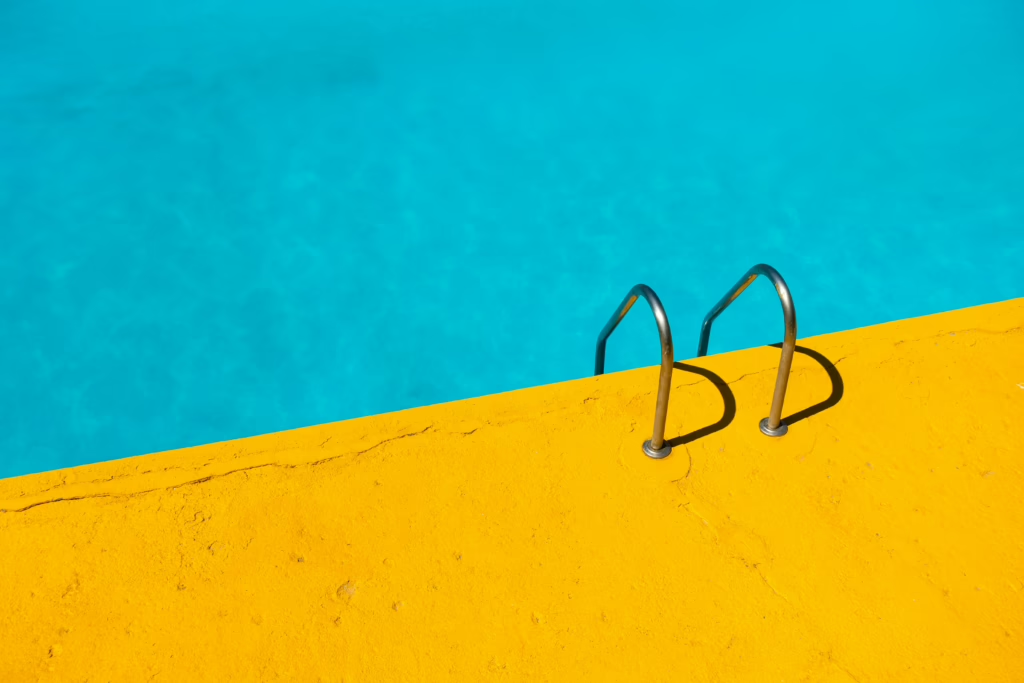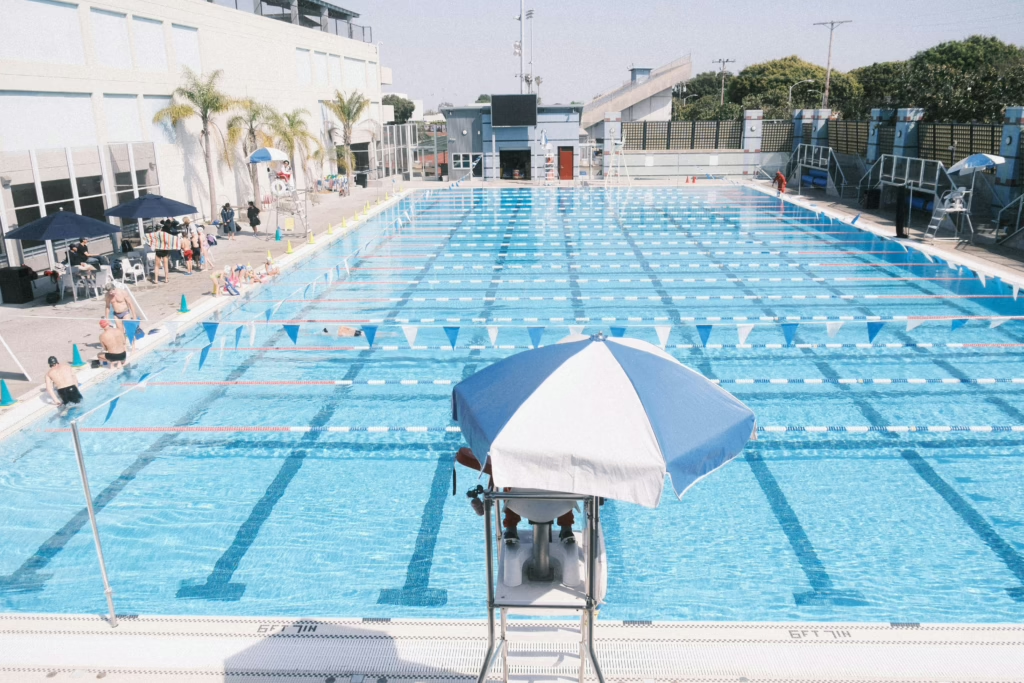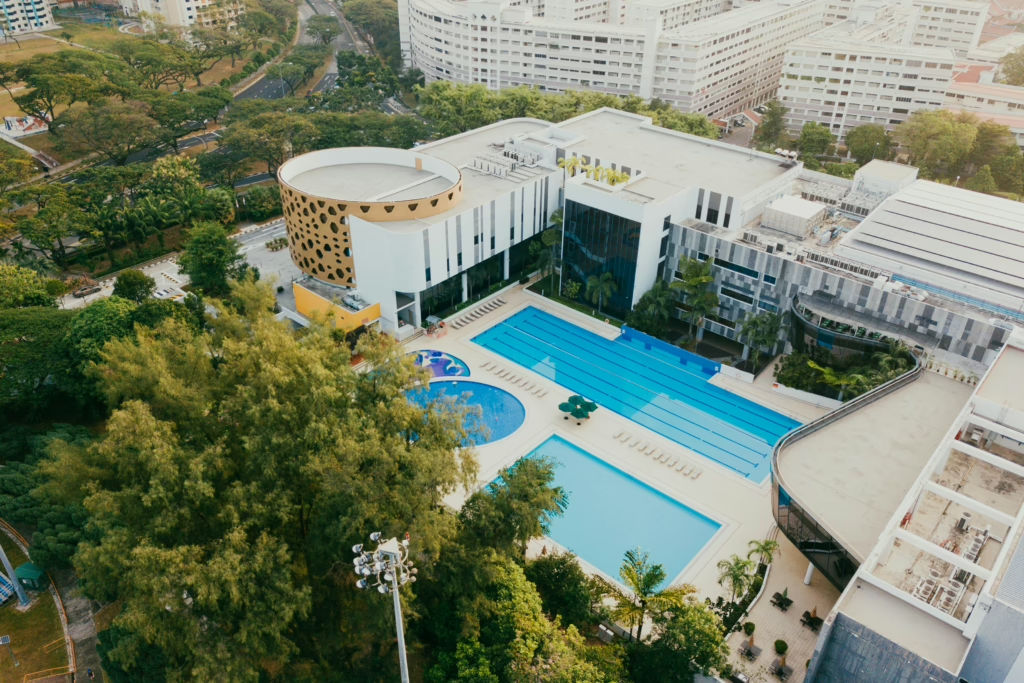Your pool filter is a critical component of your pool’s circulation system, working tirelessly to remove debris, contaminants, and particles to keep your water clean and safe. Over time, however, even the most durable pool filters lose their efficiency, leading to increased maintenance needs, higher energy bills, and diminished water quality.
Knowing when to replace your pool filter is essential to maintaining your pool’s health and ensuring the long-term efficiency of your pool system. For those searching for pool filter and pump installation near me, PoolLogic San Diego provides expert advice and professional services to keep your pool in optimal condition.
Signs Your Filter Needs Replacement
Recognizing the signs of a failing pool filter can save you from unexpected breakdowns and costly repairs.
Persistent water clarity issues are among the most noticeable indicators that your filter may no longer perform effectively. If your pool water remains cloudy or debris collects more quickly than usual, your filter might not be trapping particles as efficiently as it should.
Another common sign is the frequent need for repairs or replacements of filter components, such as cracked housing, worn-out cartridges, or damaged filter grids. These recurring issues can indicate that the filter is nearing the end of its useful life.
Rising energy bills or reduced system performance can also point to a failing filter. When a filter becomes clogged or inefficient, it forces your pool pump to work harder to maintain proper circulation. This additional strain increases energy consumption and accelerates wear on other parts of your pool system.
Addressing these signs early can prevent more significant issues and ensure your pool operates smoothly.
Average Lifespan of Different Filter Types
The lifespan of a pool filter depends on its type and how well it’s maintained. Understanding the longevity of sand, cartridge, and DE filters can help you plan for timely replacements.
Sand filters generally last between 5 and 7 years with regular backwashing and periodic sand replacement. Over time, the sand becomes compacted and less effective at trapping debris, reducing water clarity. Replacing the sand every 3–5 years can extend the filter’s life, but eventually, the entire unit will need to be replaced.
Cartridge filters typically last 3 to 5 years, depending on usage and maintenance. Regular cleaning and occasional cartridge replacement can keep these filters running efficiently. However, replacing the entire filter is often the best option once the cartridges fail to maintain consistent water clarity or begin to deteriorate.
DE (Diatomaceous Earth) filters are known for their superior filtration and durability, lasting between 8 and 10 years. However, the grids inside DE filters can wear out over time, requiring replacement. Proper maintenance, including regular backwashing and replenishing the DE powder, ensures the filter reaches its entire lifespan.
Replacing your filter immediately ensures optimal performance and avoids costly system failures.
Benefits of Replacing Your Filter
Upgrading to a new pool filter offers a range of benefits that enhance your pool’s performance and save you time and money.
One of the most immediate benefits is improved water quality and flow. A new filter effectively removes debris, dirt, and contaminants, leaving your pool water crystal clear and inviting. Enhanced filtration also supports the efficient operation of your pool pump, reducing wear and tear on the system.
Replacing an old, inefficient filter can also lower maintenance costs. Modern filters are designed to be more durable and require less frequent cleaning or part replacement. This reduces overall maintenance efforts and expenses, freeing up more time to enjoy your pool.
Energy savings are another significant advantage. New filters often operate more efficiently, reducing the strain on your pump and lowering energy consumption. This cuts down on utility bills and supports the longevity of your pool’s mechanical components.
Investing in a new filter ensures your pool system operates at peak efficiency, providing long-term benefits for both your pool and your wallet.
FAQs: Pool Filter & Pump Installation Near Me
1. How much does pool filter installation cost near me?
The cost of installing a pool filter depends on several factors, including the type of filter, pool size, and any additional plumbing work required. On average, installation costs range from $800 to $2,500. Sand filters are typically the most affordable option, while cartridge and DE filters often come with a higher price due to their advanced filtration capabilities and maintenance requirements.
2. How do I choose the right pool filter for my pool?
Selecting the right pool filter involves evaluating your pool’s size, usage frequency, and maintenance preferences. Sand filters are cost-effective and easy to maintain, making them a good choice for budget-conscious homeowners. Cartridge filters provide better filtration with less frequent cleaning, while DE filters deliver the highest water clarity but require more maintenance. Consulting a pool professional ensures the filter matches your pool’s specific needs.
3. When should I replace my pool filter?
The lifespan of a pool filter depends on the type. Sand filters generally last 5–7 years, cartridge filters about 3–5 years, and DE filters up to 10 years. Signs you might need a replacement include cloudy water, reduced flow, or frequent repairs. Regular maintenance can extend the lifespan, but an aging filter that no longer performs efficiently should be replaced.
4. What are the benefits of upgrading my pool filter?
Upgrading your pool filter improves water clarity, enhances system efficiency, and reduces maintenance needs. Modern filters often work seamlessly with energy-efficient pumps, resulting in lower operational costs and longer-lasting equipment. By upgrading, you also reduce the risk of frequent breakdowns and enjoy a cleaner, healthier swimming environment.
5. How long does it take to install a new pool filter?
Installing a new pool filter typically takes about two to four hours, depending on the complexity of your pool’s plumbing system. The process involves connecting the filter to the pump, ensuring all connections are secure, and testing the system to verify proper operation and water flow.
6. How much does a pool pump installation cost near me?
The cost of pool pump installation varies based on the type of pump and your pool’s specific requirements. Single-speed pumps are generally less expensive, while variable-speed models cost more upfront but provide long-term energy savings. On average, installation costs range from $500 to $1,800, including the pump and labor.
7. How do I choose the right pool pump for my pool?
Choosing the right pool pump requires considering factors like pool size, water volume, and energy efficiency goals. The pump’s flow rate should align with your pool filter’s capacity to ensure adequate water circulation. Single-speed pumps are economical for smaller pools, while variable-speed pumps are ideal for those seeking energy efficiency and quieter operation.
8. Should I upgrade to a variable-speed pool pump?
Upgrading to a variable-speed pool pump can significantly lower energy consumption and utility costs. These pumps allow for customizable flow rates and operate more efficiently than single-speed models. They’re quieter, last longer, and comply with modern energy standards, making them an excellent long-term investment for most pool owners.
9. How long should a pool pump last?
A well-maintained pool pump typically lasts 8–12 years. Proper care, such as regular filter cleaning and ensuring optimal water levels, can extend its lifespan. If the pump begins making unusual noises, shows reduced efficiency, or requires frequent repairs, it might be time for a replacement.
10. What are the benefits of professional pool pump installation?
Professional installation ensures the pump is sized correctly, securely connected, and calibrated for maximum efficiency. It reduces the risk of leaks, malfunctions, and premature wear while ensuring compliance with energy regulations. Many manufacturers require professional installation to validate warranties, offering additional protection and peace of mind.
For reliable pool filter and pump installation near me, trust PoolLogic San Diego. Contact us today for expert service tailored to your pool’s unique needs!
Final Thoughts
Replacing your pool filter at the right time is essential for maintaining water clarity, reducing energy costs, and preventing unnecessary repairs. Whether dealing with persistent water issues, frequent component failures, or an aging filter, upgrading to a modern system can significantly improve your pool’s performance.
For professional pool filter and pump installation near me, trust the experts at PoolLogic San Diego. Contact us today to schedule a consultation and ensure your pool is ready for years of worry-free enjoyment!



